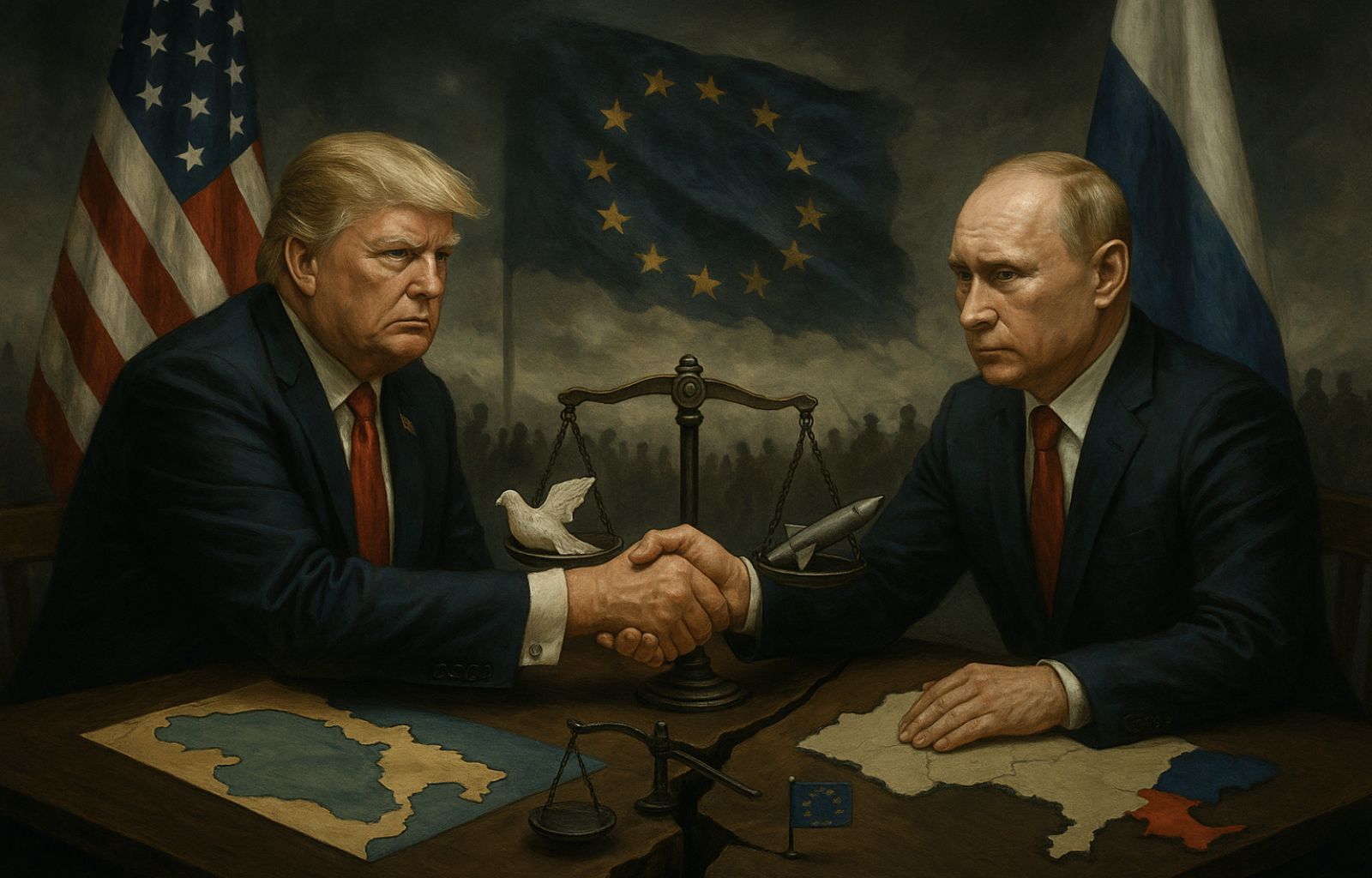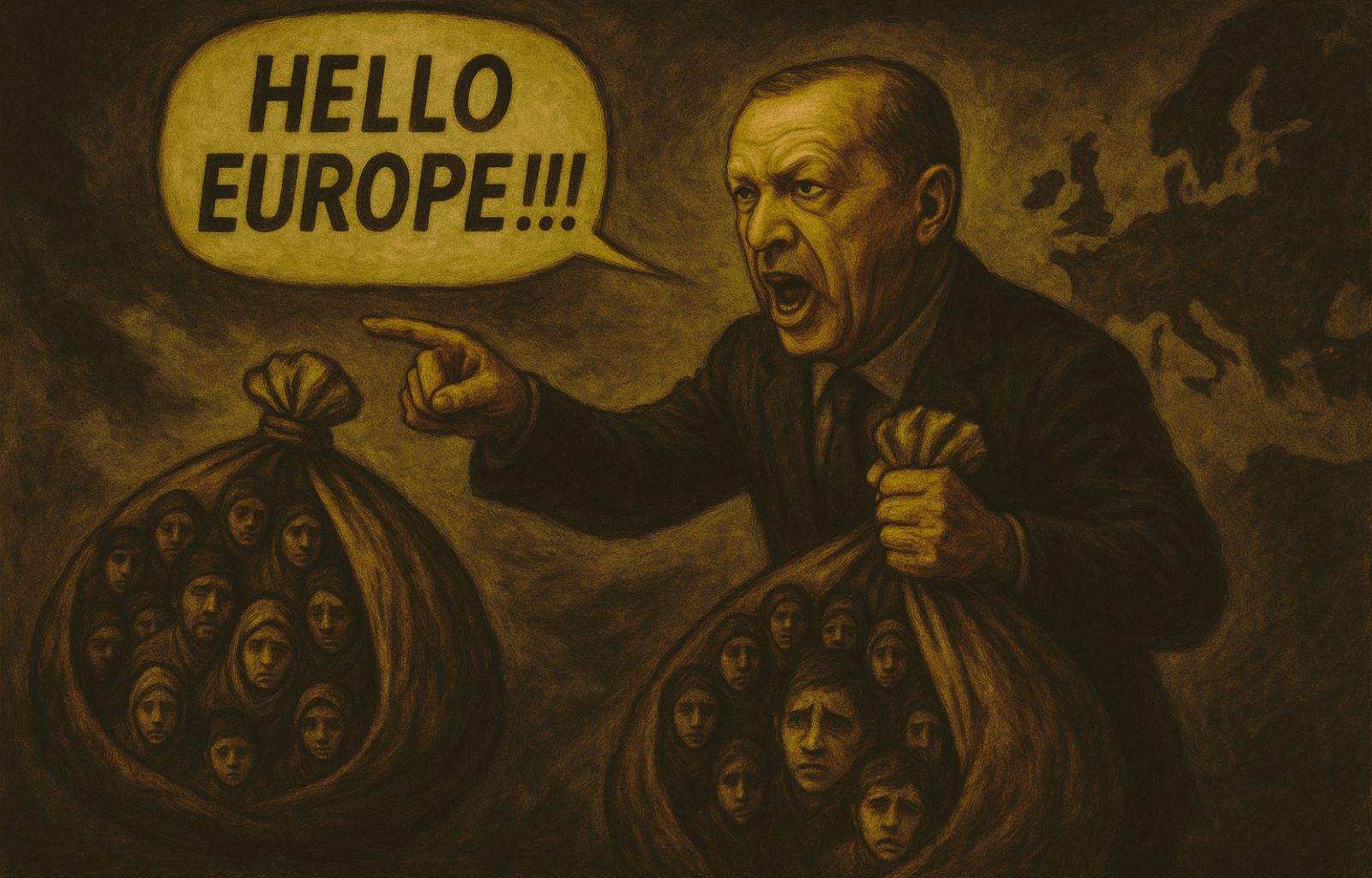Words are seeds and bear fruit, even those of Trumpian war speech

What does it mean when the elected President of the United States threatens a NATO country (Denmark) with taking part of its territory ( Greenland) by force if it does not agree to cede it to the United States in a peaceful and profitable land deal?
By “What does it mean?” I mean precisely what the political meaning of those words is, not what judgement the person who uttered them deserves, what goal – and how close or far from what he said – he set himself in uttering them, nor even how likely it is, in the immediate future, that Trump will actually decide on a military invasion of Greenland.
The average answer to this question among sceptical and, so to speak, anti-apocalyptic analysts is that the threat meant nothing at all, because it was not an announcement, nor a means to an end, but an end and a fact in itself, a political-media performance aimed at the vast public of American voters and of all the countries in the heart or in the sights of the champions ofAmerica first, to impress them – that is, to make them proud, frighten them, foment them, mislead them… – and overwhelm them by making them feel the burden of a newly coined sovereignty, freed from the encumbrances of protocol customs and even from the obligations of solidarity between allied countries.
In short – this is the anti-apocalyptic thesis – Trump wants everyone, friend and foe alike, to be persuaded that he would be capable of anything, even of invading Greenland, but one should not confuse the expression of his will to power with the announcement of a programme of conquest.

This reading has on its side the hard-to-disprove circumstance that Trump promised far more during his first term than he delivered, although the real possibility remains that he simply failed to deliver because of resistance in the so-called deep state – resistance that in this second term will be far less, if not non-existent – or the material impossibility of realising it, not because he deliberately confined it to the repertoire of boutade only good for the loyalty of the fanatical vote.
Moreover, this reading has its own coherence with the most characteristic phenomenon of contemporary democracies, which is the logical and moral dissociation between politics and government, i.e. basically between saying and doing, between representation and reality: elections are won or lost regardless of the facts and even against the facts, and political consensus has become more the measure of an unease, which demands to be recognised and legitimised than the expression of a project, the realisation of which must be accounted for.
Trump did not need to deport millions of illegals in his first term to consolidate his electoral base, and he certainly won’t need to in his second. All he needs is to show himself to be on the side of angry and frightened Americans, that is, to think like them and to express himself in their own words.
However, one should be more cautious and not take it so for granted that words, even in a politics imprisoned in the framework of social polarisation, really remain just words. Words are seeds and always bear fruit.
There are no deeds in politics, starting with the most horrific, that have not first been ‘just words’, and political ideas have rarely had consequences other than what they promised or threatened in words.
To believe that in the circus sideshow Maga Trump can be both bomber and bomb-maker, both arsonist and firebrand, both warmonger and pacifist is to overconfide in a script that, in these terms, no one has ever written. Above all, it means believing that 6 January 2021 was just a messy outing of fools and nutters, not the revealing moment of real Trumpism, when the words about ‘stolen elections’ became an assault on the Capitol and American democracy.











